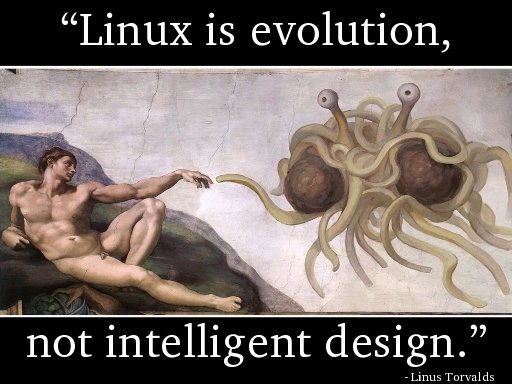lguest: The New Kid on the Block
As most of you know, virtuallization doesn’t really interest me, so me writing about lguest is rather unusual. For those who don’t know, lguest is Rusty Russell’s way of saying virtualization sucks and I can make it better (don’t quote me on that).
Yesterday, Rusty sent out 7 patch series ( 1, 2, 3, 4, 5, 6, 7) that contains most of the documentation for lguest. This is not the normal style of documentation you’ll find in the kernel. Here’s Rusty’s description…
Lguest is an adventure, with you, the reader, as Hero. I can’t think of many 5000-line projects which offer both such capability and glimpses of future potential; it is an exciting time to be delving into the source!
But be warned; this is an arduous journey of several hours or more! And as we know, all true Heroes are driven by a Noble Goal. Thus I offer a Beer (or equivalent) to anyone I meet who has completed this documentation.
So get comfortable and keep your wits about you (both quick and humorous). Along your way to the Noble Goal, you will also gain masterly insight into lguest, and hypervisors and x86 virtualization in general.
There is a very large number of totally hillarious comments. It looks like one doesn’t have to be an x86 expert to get a laugh out of them, but knowing a thing or two about the architecture makes it all the more enjoyable.
I can’t help but include few excerpts here…
Intel provided a special instruction to clear the TS bit for people too cool to use write_cr0() to do it. This "clts" instruction is faster, because all the vowels have been optimized out.
I’m told there are only two stories in the world worth telling: love and hate. So there used to be a love scene here like this:
Launcher: We could make beautiful I/O together, you and I.
Guest: My, that’s a big disk!Unfortunately, it was just too raunchy for our otherwise-gentle tale.
Just read the patches. They are really amusing :)
